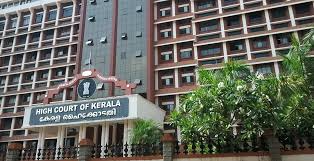Kerala man who claimed judges working under Sangh influence gets 3 days in jail for contempt of court

The Kerala High Court recently sentenced PK Suresh Kumar to three days in jail and fined him ₹2,000. Kumar, from Ernakulam, faced contempt of court charges. He posted allegations on Facebook claiming some judges in Kerala’s High Court were influenced by the Rashtriya Swayamsevak Sangh (RSS).
Case Background
Kumar, a former media professional, shared several posts accusing judges, especially those on the Devaswom Bench, of being biased by the Sangh Parivar. His posts questioned the judiciary’s independence.
One post stood out: “It is the goddess of justice who sits in the high court, not a woman holding a saffron flag.” The court found this statement offensive and damaging to its reputation.
Why It Counts as Contempt
India’s Contempt of Courts Act, 1971 protects courts from actions that undermine their authority. The law forbids acts that scandalize or interfere with judicial proceedings.
The Kerala High Court took suo motu action after seeing Kumar’s posts. It said fair criticism is allowed but defaming the judiciary is not. Such remarks harm public trust.
Past Warnings Ignored
This was not Kumar’s first warning. Earlier, he faced contempt charges for similar posts but apologized. After being discharged, he resumed posting derogatory comments. This repeated behavior forced the court to act firmly.
Court’s Decision
The court highlighted the judiciary’s crucial role in democracy. It said attacks on judges threaten justice itself.
Kumar’s posts went beyond criticism. They scandalized the court and lowered its authority. The court sentenced him to three days in jail and fined him ₹2,000.
Judicial Independence Matters
The judiciary must stay independent and impartial. This independence ensures fair justice for all.
If people doubt the courts’ fairness, the whole system suffers. Protecting judicial dignity safeguards the rule of law.
Public Debate
This case has sparked debate on free speech limits. Supporters of Kumar argue citizens should question the judiciary.
However, legal experts warn that baseless attacks erode public trust. Criticism should happen through proper channels, not defamatory posts.
Contempt Laws in India
India has strict laws to protect court authority. The Supreme Court says contempt laws do not limit free speech but preserve justice.
Courts allow reasoned criticism but punish attacks on judges’ integrity. This distinction keeps judicial respect intact.
Conclusion
The Kerala High Court’s verdict reminds us that free speech carries responsibility. Citizens can question authority but must respect the judiciary’s dignity.
Social media spreads information fast. This power requires careful use to protect justice. Upholding court respect ensures democracy thrives.






